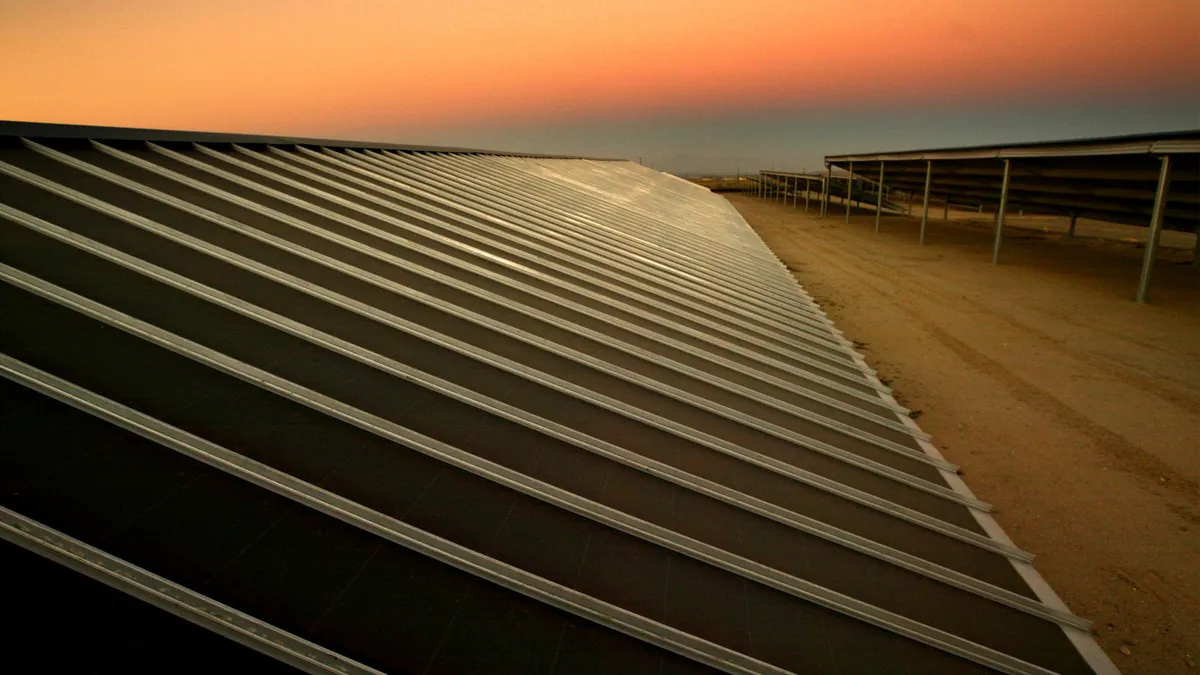Trade associations representing the clean energy sector are voicing serious concerns about the U.S. Department of Commerce’s Friday announcement of its preliminary determination to affirm that solar panels imported from certain Southeast Asian countries circumvented tariffs on Chinese-made solar components.
Commerce believes “four of the eight companies being investigated” are guilty of attempting to evade tariffs by doing “minor processing” in four countries, and will make a country-wide circumvention finding for each.
“Companies in these countries will be permitted to certify that they are not circumventing the AD/CVD orders, in which case the circumvention findings will not apply,” Commerce said.
Industry groups American Clean Power, Advanced Energy Economy and the Solar Energy Industries Association each called the decision “disappointing” in Friday releases, though AEE’s managing director Harry Godfrey said it was “encouraging” that the department didn’t reach a blanket decision on solar components.
American Council on Renewable Energy President and CEO Gregory Wetstone said in a release that the decision appeared to be “doubling down on constricting solar availability, and imposing massive new red tape with certification requirements that could further chill the industry and thwart the administration's clean energy objectives.”
When reached for comment, Wetstone also expressed concerns about the certification requirement, saying that Commerce had provided “no detail on how that will work” and that companies will be looking for clarity.
“We are enthusiastic about the build-out of a domestic supply chain that includes a lot more manufacturing here in the U.S., catalyzed by the incentives in the Inflation Reduction Act,” Wetstone said. However, “no one thinks we're going to make this transition overnight.”
He said that the renewable energy sector has been “relying on a global supply chain for years” and that if this isn’t recognized, “there is going to be a huge negative impact on our ability to achieve the clean energy transition.”
President Joe Biden recognized that conflict earlier this year, and in June issued a two-year moratorium on new tariffs for imported solar panels. SEIA called this decision “wise,” but said that this window is “quickly closing, and two years is simply not enough time to establish manufacturing supply chains that will meet U.S. solar demand.”
A Commerce spokesperson said the opposite, responding to the criticism from industry groups by pointing out that solar importers “will have until June 2024 to find new suppliers who are willing and able to show they are complying with American trade laws.”
“Further, with the passage of the Inflation Reduction Act, American manufacturers are seeing major domestic investment and we are confident that we can meet our climate goals while enforcing long-standing trade laws at the same time,” the spokesperson said. “These laws have been on the books since 2012, and there is no reason that there should be any confusion about them.”
A group of Democratic senators on Friday called for Biden to ameliorate Commerce’s decision by extending the two-year pause and expedite Inflation Reduction Act provisions like solar manufacturing tax credits.
Nine senators so far have joined a statement saying they are concerned that the decision will “harm domestic solar efforts, hinder our clean energy goals, and hurt American jobs.”
They point to an April SEIA report which stated that 70% of U.S. companies “say at least half of their solar workforce is at risk as a result of this investigation.”














